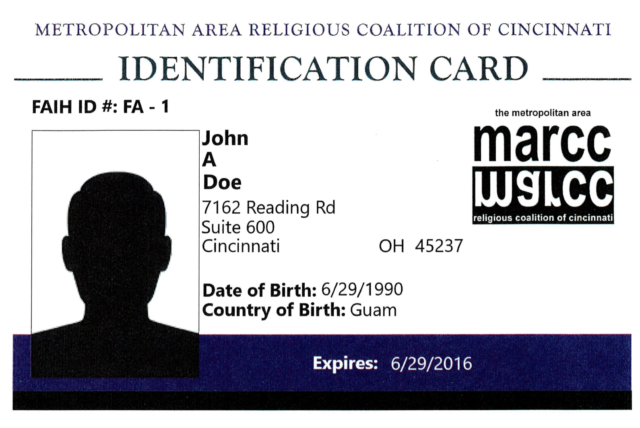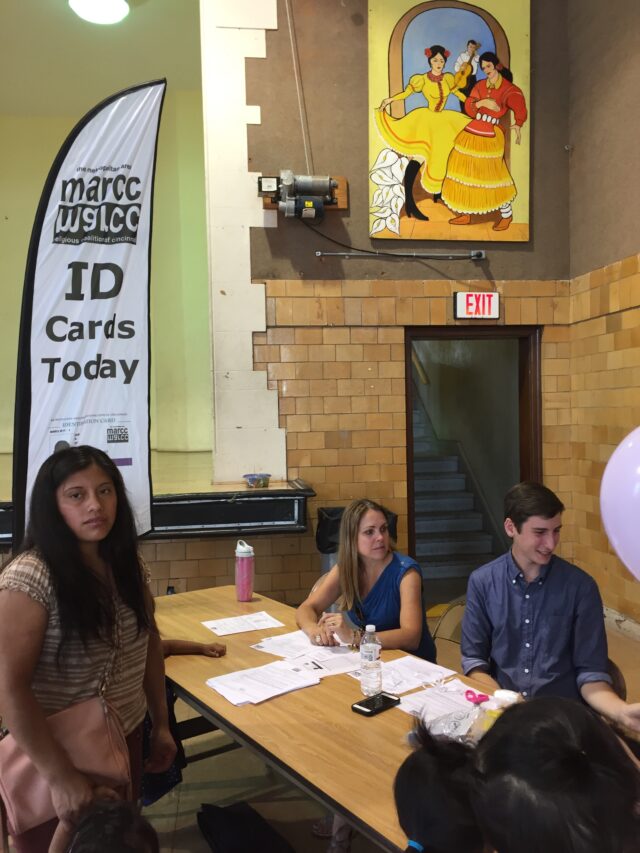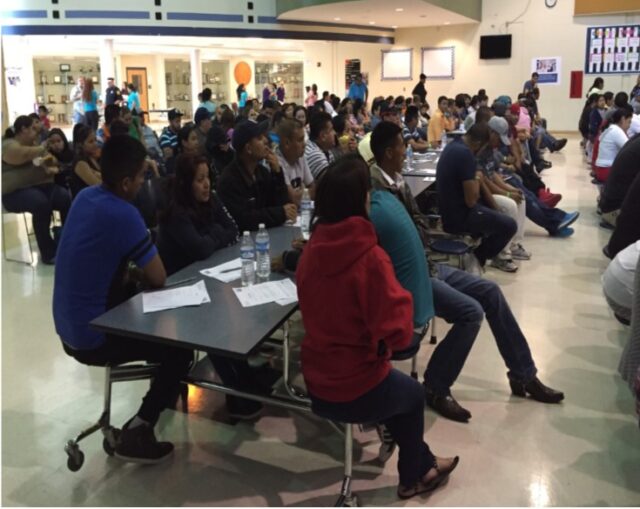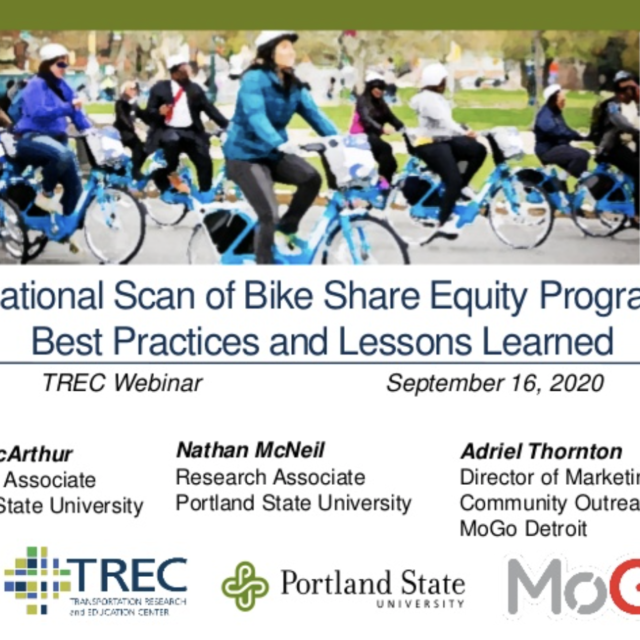The MARCC ID Card: Identification for Everyone
by Farrah Daniel, Better Bike Share Partnership Writer
September 29, 2020
 A copy of the MARCC ID card
A copy of the MARCC ID card
Do you need a photo ID but don’t fit the standard requirements of who can get one? Thankfully, there’s a group of advocates who are dedicated to breaking this barrier.
In 2016, the MARCC ID card was created by The Metropolitan Area Religious Coalition of Cincinnati to help undocumented people, people experiencing homelessness, those released from prison or anyone without traditional government identification obtain photo ID cards. To date, thousands have been distributed.
To gain a better understanding of how MARCC makes this program work and what they envision for the future, BBSP spoke with Executive Director Margaret Fox, who’s been with the coalition throughout its entire 53-year history. She believes identification is important for all walks of life, and says, The [MARCC ID card] actually has value and is respected by law enforcement, emergency services, housing; all kinds of things.”
A Brief History
MARCC was born in 1967. Riots in Cincinnati awakened a realization that the new laws against discrimination weren’t effective and stirred congregational leaders into action: Bishop Roger Blanchard, Rabbi Albert Goldman and Monsignor Ralph Asplan, with the organizing skills of The Reverend Paul Long.
MARCC has worked effectively behind the scenes with the City Council, Cincinnati Police Department, Cincinnati Metropolitan Housing Authority, Cincinnati Public Schools, and Hamilton County Jobs and Family Services to better serve Cincinnati communities. Each year, MARCC focuses on two main concerns and works to determine the best ways to positively reshape them. This year’s two concerns are:
1. Displacement/Affordable Housing/Homelessness
2. Community-Police Relations/Justice Reform
It has been 53 years since the creation of this coalition of judicatories, and the members have been quite successful in their mission to work together on local social concerns to improve the lives of people in metropolitan Cincinnati.
How the MARCC ID Serves the Marginalized


Source: The Metropolitan Area Religious Coalition of Cincinnati
Greensboro, North Carolina’s FaithAction group worked with local police to provide identification to residents who were without other forms of government ID. Shortly after, MARCC decided to follow in its footsteps.
The MARCC ID card was created to support a safe, more inclusive and welcoming community — that’s why MARCC distributed it monthly via the Catholic Charities of Southwestern Ohio. The first time the time organizations collaborated to distribute the cards, more than 600 people stood in line to get one — some even slept outside overnight.
Fox, the coalition’s executive director, said the program helps America’s most vulnerable populations. “It deescalates the tension regarding reporting a crime or being a victim of crime,” she said. “I think also if the police see this card, they’ll honor it and they’ll know this person’s been processed.”
The ID card is a valid form of identification but only within the city of Cincinnati. What services can people access with a MARCC ID card?
- 👉 Rent e-bikes with RedBike through the Go Pass low-income bike share program
- 👉 Establish valid identification with the Cincinnati Police Department; law enforcement departments in the cities of Blue Ash, Forest Park, St. Bernard, Springdale and West Chester Township; Hamilton County Sheriff;
- 👉 Access to municipal services in the cities of Cincinnati, OH and Covington, KY
- 👉 Establish valid identification with the Cincinnati Fire Department
- 👉 Obtain a library card at any branch of the public libraries in Hamilton County
- 👉 Establish water and sewer services with Greater Cincinnati Water Works
- 👉 Access medical and dental care with the Cincinnati Health Department and Tri-Health
- 👉 Establish valid identification for Women’s, Infants, and Children’s program (WIC) services
- 👉 Obtain building and event permits from the City of Cincinnati
- 👉 Establish services within the city to receive trash and sanitation services
- 👉 Ability to submit a formal complaint with Cincinnati’s Property Maintenance and Code Enforcement department
The only time the MARCC ID is not valid is when the state and/or federal law supersedes that of the local jurisdiction. For example, it doesn’t allow people to vote and it’s not a replacement for a driver’s license.
There are the two documents people in Cincinnati need to get this ID card:
1. A document that lists your current address, like a utility bill, credit card bill, bank statement, or a lease.
2. A document that includes your date of birth. For example, a passport, birth certificate, expired driver’s license, foreign national ID card from your home country or a military ID. Also accepted is a Matrícula Consular, which is an ID issued by the Government of Mexico through its consulate offices to Mexican nationals residing outside of Mexico.
Since 2016, more than 2,000 ID cards have been distributed. “I feel the services and impact of the MARCC ID project are amazing and carries with it the opportunity to improve the lives of those who are most vulnerable in our community and region,” says Fox.
The Better Bike Share Partnership is a JPB Foundation-funded collaboration between the City of Philadelphia, the Bicycle Coalition of Greater Philadelphia, the National Association of City Transportation Officials (NACTO) and the PeopleForBikes Foundation to build equitable and replicable bike share systems. Follow us on Facebook, Twitter and Instagram or sign up for our weekly newsletter. Story tip? Write farrah@peopleforbikes.org.



